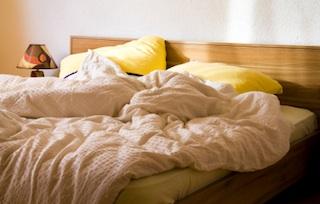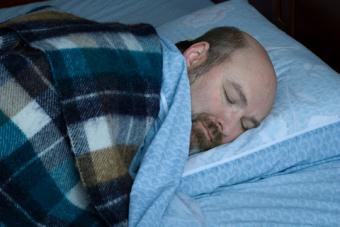
Dyssomnia is a disturbance in the sleep cycle that interrupts the number of hours a person sleeps or the quality of their sleep. Dyssomnias include a wide number of conditions that can keep a person from achieving restful sleep.
What Is Dyssomnia?
Dyssomnia is a general term that refers to any sleep disorder, or any condition that affects a person's ability to fall asleep and to stay asleep. The term also refers to any condition that causes excessive sleep. In some cases, the sleep disturbances are temporary but many people experience chronic dyssomnia.
Sleep problems include:
- Problems with the amount of sleep, whether too little or too much
- Poor sleep quality resulting in feeling tired in spite of getting an adequate number of hours of rest
- Problems falling asleep
- Unable to stay asleep throughout the night
- Waking too early in the morning
- Problems with timing sleep schedules
Types of Dyssomnia
Dyssomnias can be categorized according to the type of sleep problem the individual is experiencing. Some sleep problems are extrinsic, which means that they are caused by external conditions while others have underlying medical causes. Sleep disorders may have no known cause.
Insomnia
Insomnia is perhaps the most well-known sleep disorder. Insomnia includes sleep problems that interfere with the ability to fall asleep, to stay asleep and to achieve quality sleep. Types of insomnia include:
- Stress-related insomnia is associated with sleeplessness caused by anxiety.
- Sleep maintenance insomnia occurs when the sleeper falls asleep without trouble but wakes up in the middle of the night, unable to fall back asleep.
- Sleep offset insomnia occurs when the sleeper is unable to fall back asleep after waking very early in the morning.
- Fatal familial insomnia is a genetic disorder that affects a small number of people. The chronic insomnia is so severe in fatal familial insomnia that it can lead to death.
Sleep Problems and Lifestyle
Some sleep disorders occur when the person engages in behaviors that interfere with sleep cycles. Problems include:
- Excessive alcohol
- Medications
- Poor sleep hygiene
- Jet lag
- Shift work
Treatment for this type of dyssomnia involves changes in lifestyle, developing better sleep habits and cognitive behavioral therapy.
Breathing-Related Sleep Disorders
Snoring and sleep apnea are dyssominas related to breathing problems during sleep. Those who snore may awaken themselves or their partners throughout the night. Those affected by sleep apnea stop breathing during the night, which disrupts sleep. Breathing-related problems include:
- Obstructive sleep apnea
- Central sleep apnea
- Hypopnea
Movement Disorders
Sleep may be disturbed by involuntary movements that occur throughout the night. In some cases, the movements impede the ability to fall asleep or they can awaken the sleeper throughout the night. Movement disorders that can disrupt sleep include:
- Periodic limb movement disorder
- Somnambulism
- Twitching or jerking in sleep
- Bruxism
Some people experience the uncontrollable urge to move their legs at the onset of sleep with a condition known as restless leg syndrome. Problems with leg cramps and numbness in hands while sleeping can also disturb rest.
Circadian Rhythm Problems
Each person has an internal clock that sets his or her sleep-wake schedule. This is called the "circadian rhythm." When the circadian rhythm is disrupted, the quality, amount or timing of sleep can be affected. Circadian rhythm problems include:
- Delayed sleep phase syndrome, in which the person falls asleep very late at night and awakens very late in the morning or afternoon.
- Advanced sleep phase syndrome causes the person to fall asleep very early in the evening and wake very early in the morning.
- REM behavior disorder affects the person's rapid eye movement stage, causing the body to not fully rest during this deepest stage of sleep.
Excessive Sleep
The need for excessive sleep is just as troublesome as the inability to get enough sleep. Some conditions stem from neurological problems while others have no known cause.
- Narcolepsy is a neurological disorder that causes the affected individual to experience intermittent sleep episodes that can occur anytime of day.
- Hypersomnia is a sleep disorder characterized by the need for excessive sleep in spite of getting enough rest the night before. Idiopathic hypersomnia refers to hyposomnia with no known cause.
Dyssomina has many forms and treatment depends on the cause of the sleep disturbances. In many cases, the sleep problems go away without any intervention. When dyssomnia consistently interferes with your quality of life, discuss the symptoms with your physician.







